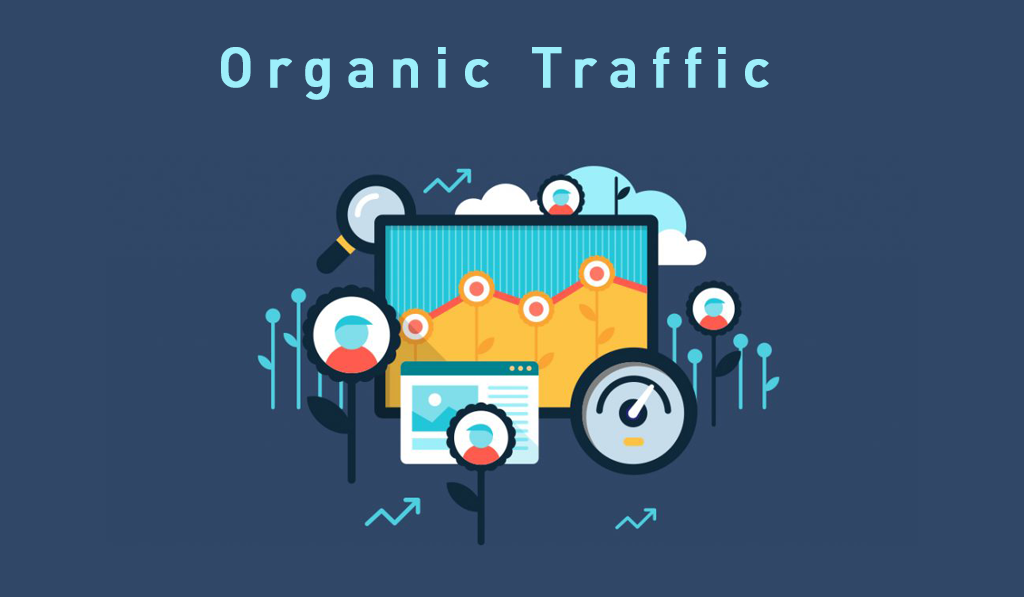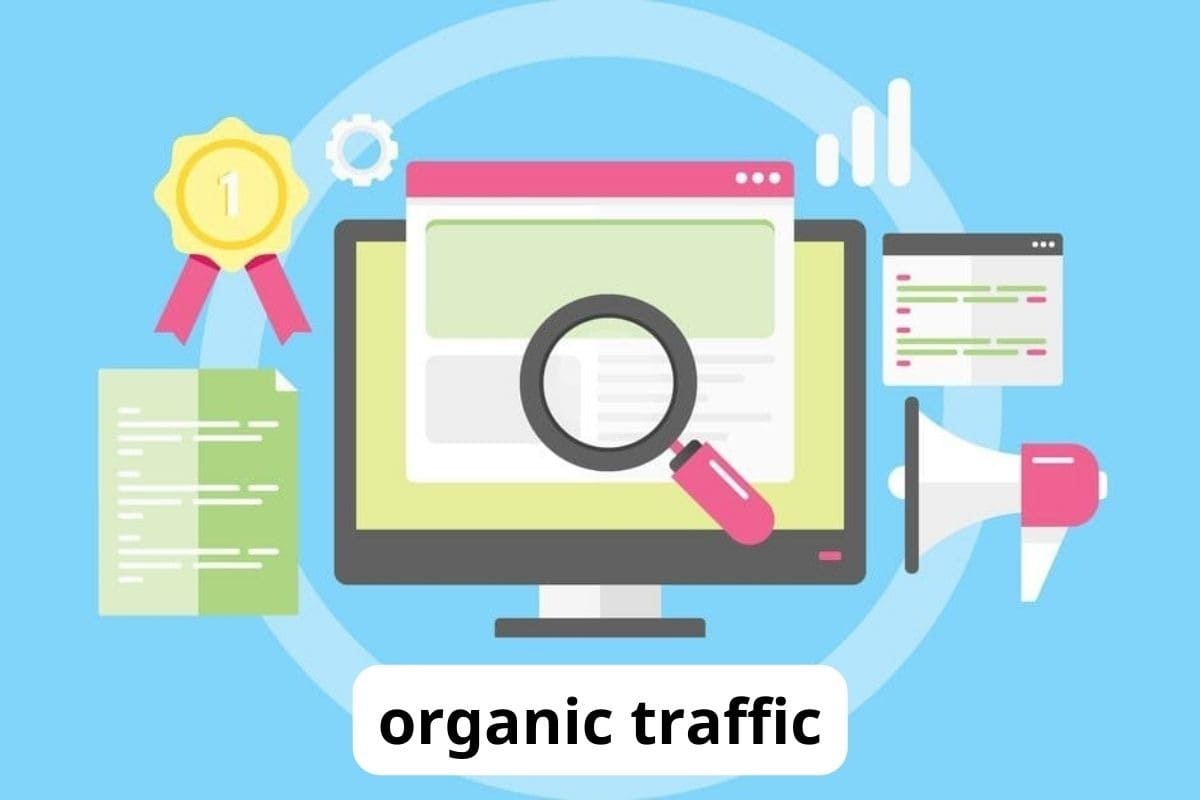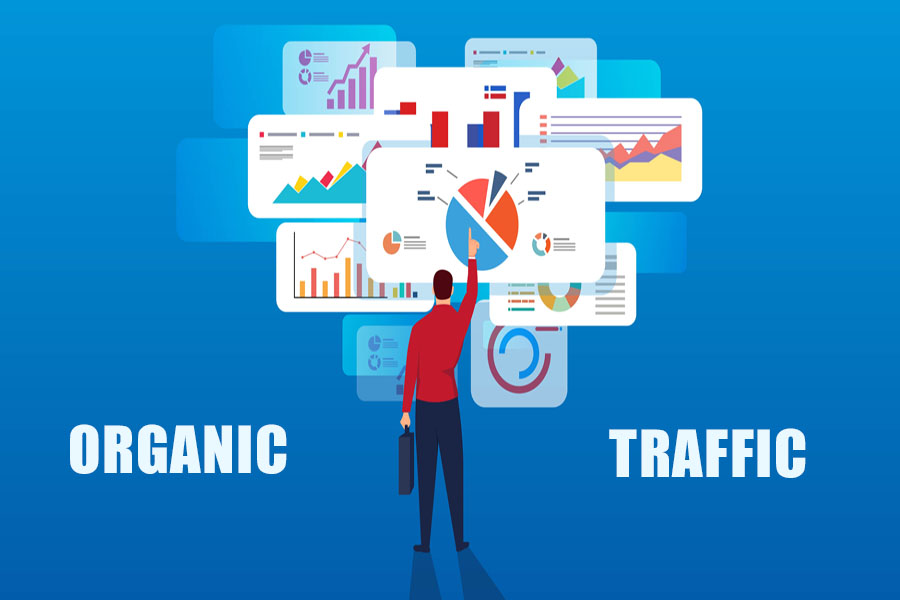In today’s digital age, the success of any business heavily relies on its online presence. While paid advertising and social media marketing have their own benefits, organic traffic is still considered as the most valuable source for website visitors. Organic traffic refers to the visitors who come to your website through unpaid search results, such as from search engines like Google, Bing or Yahoo. These visitors are highly targeted and have a higher chance of converting into customers compared to paid traffic.
However, many businesses struggle to drive organic traffic to their websites. With ever-changing algorithms and increasing competition, it can be challenging to keep up with the best practices for organic traffic generation. In this comprehensive guide, we will delve deeper into the world of organic traffic and provide you with actionable strategies to increase it for your website.
Understanding Organic Traffic
Before diving into the strategies to improve organic traffic, it is crucial to understand what it means. Organic traffic is the opposite of paid traffic, which is generated through paid advertisements. When a user enters a search query on a search engine, the results that appear in the top positions are organic listings. These listings are not influenced by any paid promotions, but rather by their relevance and authority.

When a user inputs a search query into a search engine, the results that display at the top positions are organic listings
Organic traffic is driven by two main factors – search engine optimization (SEO) and content marketing. SEO involves optimizing your website’s content and technical aspects to rank higher on search engine result pages (SERPs). On the other hand, content marketing is about creating high-quality, relevant and engaging content that attracts and retains your target audience. These two elements work hand in hand to drive organic traffic to your website.
The Role of SEO in Organic Traffic Generation
SEO is an essential aspect of any digital marketing strategy, as it helps improve your website’s visibility and ranking on search engines. It involves optimizing various on-page and off-page factors to make your website more appealing to search engine algorithms. Some of the key elements of SEO include:
- Keyword Research: This involves identifying relevant keywords that your target audience uses when searching for products or services similar to yours. Keyword research helps you understand the search intent of your audience and create content that aligns with it.
- On-page Optimization: This includes optimizing your website’s title tags, meta descriptions, heading tags, images, and other elements to make them more search-engine friendly.
- Off-page Optimization: This refers to building backlinks to your website from other authoritative websites. Search engines consider backlinks as a vote of confidence for your website’s credibility and authority.
- Technical SEO: This involves improving your website’s technical aspects, such as site speed, mobile-friendliness, and site structure, to ensure a smooth user experience.
The Relationship between Content Marketing and Organic Traffic
While SEO helps your website rank higher on search engines, content marketing provides you with the right fuel to drive organic traffic. High-quality and relevant content can attract and retain your target audience, ultimately leading to improved organic traffic. Content marketing helps in the following ways:
- Targeting Keywords: By conducting keyword research and creating content around those keywords, you can target specific queries that your potential customers are searching for. This increases the chances of your content appearing on the first page of SERPs and driving organic traffic.
- Providing Value: Creating valuable and informative content can help establish your brand as an authority in your industry. When users find your content useful, they are more likely to return to your website and share your content, leading to increased organic traffic.
- Encouraging Engagement: Content marketing involves creating different types of content, such as blog posts, videos, infographics, podcasts, etc. This variety can help you engage with your audience through different mediums and keep them interested in your brand.
- Building Backlinks: High-quality content is more likely to be shared by other websites, leading to backlinks to your website. As mentioned earlier, backlinks are crucial for improving your website’s authority and ranking on search engines.
Importance of Organic Traffic for Your Business
Now that we have a better understanding of what organic traffic is and how it is generated, let’s explore why it is essential for your business.
Highly Targeted Traffic
Organic traffic is highly targeted, meaning the visitors coming to your website are genuinely interested in your products or services. When a user conducts a search on a search engine, they are actively looking for something specific, and if your website appears in the top results, it means that your content is relevant to their query. This increases the chances of converting these visitors into customers.

Organic traffic is precisely targeted, indicating that the visitors arriving at your website have a genuine interest in your products or services
Cost-effective
Compared to paid traffic, organic traffic is cost-effective. While paid advertising can give you immediate results, it requires a significant budget to maintain. On the other hand, organic traffic is free, and once you have established a strong online presence, it can continue to bring in visitors without any additional cost.
Long-term Results
Organic traffic can provide long-term results for your business. Once you have optimized your website and created valuable content, it will continue to attract visitors for months or even years to come. Unlike paid traffic, which stops once you stop investing in it, organic traffic has a lasting impact.
Factors Affecting Organic Traffic
Before implementing strategies to boost organic traffic, it is essential to understand the various factors that influence it. Some of the main factors affecting organic traffic include:
Search Engine Algorithms
Search engines like Google, Bing, and Yahoo have complex algorithms that determine the ranking of websites on their SERPs. These algorithms are continuously evolving, making it challenging to stay on top of them. However, keeping up with the latest updates and best practices can help you improve your website’s ranking and drive more organic traffic.
Competition
With millions of websites competing for the same keywords and target audience, the level of competition can significantly affect your organic traffic. If your competitors are implementing effective SEO and content marketing strategies, it can be challenging to outrank them on search engine result pages.
Quality of Content
As mentioned earlier, high-quality content is crucial for driving organic traffic. If your content is not engaging, informative, or relevant to your target audience, it will not rank well on search engines, and visitors are less likely to return to your website.
User Experience
Search engines consider user experience as a critical factor in determining a website’s ranking. Your website should be easy to navigate, load quickly, and be mobile-friendly. A poor user experience can lead to a higher bounce rate, which negatively impacts your organic traffic.
Best Practices to Improve Organic Traffic
Now that we have discussed the importance of organic traffic and the factors affecting it, let’s dive into the best practices to improve it.
1. Conduct Keyword Research
Keyword research is the foundation of any successful SEO and content marketing strategy. It helps you understand the search intent of your target audience and create content around relevant keywords. Some tools, such as Google Keyword Planner, SEMrush, and Ahrefs, can help you identify potential keywords and their search volumes.

Conducting keyword research forms the cornerstone of every effective SEO and content marketing strategy
When conducting keyword research, keep in mind the following:
- Focus on long-tail keywords: These are longer, more specific keywords that have lower search volumes but are highly targeted. They are easier to rank for and can bring in more qualified leads to your website.
- Consider user intent: When selecting keywords, consider what the user hopes to achieve with their search query. Are they looking for information, products, or services? This will help you create content that aligns with their search intent.
- Analyze keyword difficulty: Some keywords are more challenging to rank for than others, based on their competition and search volume. It is essential to analyze the keyword difficulty and target those that you have a higher chance of ranking for.
2. Optimize Your Website’s On-page Elements
Optimizing your website’s on-page elements is a crucial step in improving your organic traffic. These elements include title tags, meta descriptions, heading tags, images, and URLs. Here are some tips for optimizing each of these elements:
- Title Tag: Your title tag is the first thing that users see on search engine result pages. It should contain your targeted keyword and be no more than 60 characters in length.
- Meta Description: The meta description provides a brief summary of your webpage on SERPs. It should be informative, engaging, and encourage users to click through to your website.
- Heading Tags: Heading tags (H1, H2, H3, etc.) help break up your content and make it more readable. They also provide structure to your webpage and help search engines understand its context.
- Images: Optimize your images by using alt tags and file names that include your targeted keywords. This will help your images appear in image search results and improve your website’s overall SEO.
- URLs: Use shorter, descriptive URLs that include your targeted keywords. Avoid using numbers or special characters in your URLs, as they can make them look spammy.
3. Create High-quality, Relevant Content
Content is the key to driving organic traffic to your website. High-quality and relevant content can attract and retain your target audience, ultimately leading to increased organic traffic. Here are some tips for creating content that ranks well on search engines:
- Understand your target audience: Before creating any content, it is crucial to understand your target audience and their pain points. This will help you create content that speaks directly to their needs.
- Be informative and engaging: Your content should provide value to your audience by answering their questions, solving their problems, or entertaining them.
- Use a variety of content formats: Don’t limit yourself to just blog posts; experiment with different types of content such as videos, infographics, podcasts, etc., to keep your audience engaged.
- Optimize your content for SEO: Incorporate your targeted keywords in your content, but avoid keyword stuffing. Use headings, subheadings, and bullet points to make your content more readable.
- Publish consistently: Regularly publishing new content can help improve your website’s ranking on search engines. Create a content calendar and stick to it to ensure a consistent flow of fresh content.
4. Build Backlinks to Your Website
Backlinks are an essential factor in improving your website’s authority and ranking on search engines. However, not all backlinks are created equal. Quality is more important than quantity when it comes to backlinks. Here are some tactics for building high-quality backlinks:
- Guest Blogging: Writing guest posts for other websites in your industry can help you build relationships with other bloggers and gain backlinks to your website.
- Create Viral Content: When you create high-quality, engaging content, other websites are more likely to link back to it. Focus on creating content that is shareable and deserves to go viral.
- Participate in Online Communities: Join online forums, groups, and communities related to your industry. Engage with the members and share your content when relevant. This can help drive traffic to your website and potentially earn backlinks.
- Fix Broken Links: Use tools like Ahrefs or Broken Link Checker to find broken links on other websites. Reach out to the website owners and offer a replacement link to your content if it is relevant.
5. Leverage Social Media
While social media may not have a direct impact on your website’s ranking, it can play a significant role in driving organic traffic. By sharing your content on social media platforms, you can reach a wider audience and engage with them. Here are some social media best practices to drive organic traffic:
- Share your content regularly: Share your content on social media platforms multiple times to reach a larger audience. Create different variations of your post to avoid being repetitive.
- Engage with your audience: Social media is all about building relationships. Engage with your audience by responding to comments, asking for their opinions, and sharing valuable content from others.
- Use hashtags: Use relevant hashtags to make your content more discoverable on social media platforms.
- Partner with influencers: Partnering with influencers in your industry can help expose your content to a larger audience and drive more organic traffic to your website.
Common Mistakes to Avoid in Organic Traffic Generation
Now that we have discussed the best practices for improving organic traffic, let’s take a look at some common mistakes that businesses make that can hinder their efforts.
1. Neglecting Technical SEO
Technical SEO is often overlooked by businesses when trying to improve their organic traffic. However, ignoring technical aspects like site speed, mobile-friendliness, and site structure can negatively impact your website’s ranking on search engines. Make sure to regularly audit your website and fix any technical issues that may arise.
2. Focusing on Quantity over Quality
Creating high-quality content should always be a priority over creating a large volume of mediocre content. While publishing multiple blog posts per week may seem like a good idea, it can harm your website’s ranking if the content lacks value. Focus on creating well-researched, informative content that resonates with your target audience.
3. Not Analyzing and Improving
Measuring and tracking your organic traffic is crucial to understanding what strategies are working and what needs improvement. Using tools like Google Analytics, you can track your website’s traffic, user behavior, and conversions. Use this data to identify areas of improvement and make changes accordingly.
Measuring and Tracking Organic Traffic
As mentioned earlier, measuring and tracking your organic traffic is crucial to understanding your progress and identifying areas for improvement. Here are some metrics you should pay attention to:
- Organic Traffic: This metric shows the number of visitors coming to your website through search engine results.
- Bounce Rate: The bounce rate measures the percentage of visitors who leave your website after viewing only one page. A high bounce rate can indicate poor user experience or irrelevant content.
- Time on Page: This metric shows how long users spend on a particular page of your website. A higher time on page is an indication that users are engaging with your content.
- Pages per Session: This metric shows the average number of pages a user views during one session on your website. A higher number is an indication of a good user experience and relevant content.
- Conversions: Finally, conversions refer to the number of visitors who take a desired action on your website, such as making a purchase or filling out a contact form.
Conclusion
Organic traffic is a valuable asset for any business looking to improve its online presence. By implementing the best practices mentioned in this guide, you can drive targeted, cost-effective and long-term traffic to your website. Remember to focus on creating high-quality, relevant content, optimizing your website for SEO, and building relationships with your target audience. With consistency and patience, you will see a significant improvement in your website’s organic traffic, leading to increased conversions and revenue.
